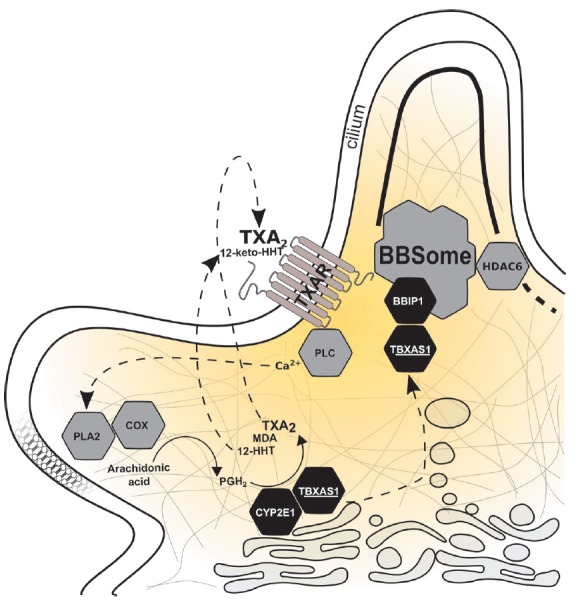Fig. 1.

Schematic representation of TXA2 biosynthesis supplemented by our experimental results. PLC – phospholipase C, PLA2 – phospholipase A2, COX – cyclooxygenase. Biosynthesis of TXA2 begins with the release of arachidonic acid from membrane phospholipids assisted by PLA2. Then, COX catalyzes the transformation of arachidonic acid into prostaglandin H2, which is then metabolized by TBXAS1 to form TXA2, 12-HHT, and MDA. At the same time, prostaglandin H2 is transformed by CYP2E1 to 12-HHT and MDA. TXA2 binding to TXAR causes signal transmission via the inositol phosphate pathway with PLC activation and mobilization of intracellular Ca2+, which has a stimulating effect on PLA2. Further, 12-HHT is metabolized by 15-hydroxyprostaglandin dehydrogenase to form 12-keto-HHT, which has a partial antagonistic effect on TXAR. TBXAS1 also presumably interacts with BBIP1, which is a component of the protein transport complex of cilia (BBSome). BBIP1 can influence the stability of the microtubulin cytoskeleton, indirectly inhibiting HDAC6 (microtubule deacetylase).
